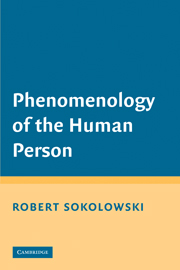18 - Thomas Aquinas
Published online by Cambridge University Press: 05 June 2012
Summary
The description of knowledge given by Thomas Aquinas is largely a continuation of Aristotle's, but it is more complicated and greatly influenced by the work of St. Augustine. It was also influenced by some Muslim thinkers. Aquinas generally follows Aristotle in describing the external and internal senses, and he stresses the importance of the phantasm in human knowledge. He distinguishes between the passive and the active intellect, and he insists, in opposition to some other interpreters of Aristotle, that the agent intellect is a power within each human being; it is not separate and common to all humanity. Aristotle's own text, the short chapter De Anima III 5, is ambiguous on the separateness of the agent intellect, but it could be taken in the way Aquinas and other commentators take it. On all these points, therefore, Aquinas is in close harmony with Aristotle.
Thomas Aquinas on the “Internal Word”
Aquinas differs most clearly from Aristotle in the description of what the intellect does. In his mature works, he distinguishes two intellectual events that occur when we come to know things. In the first, the receptive intellect takes in the universal form that is freed or abstracted from the phantasm under the light of the agent intellect. Aquinas calls this received form the “intelligible species,” species intelligibilis, which is a very interesting term.
- Type
- Chapter
- Information
- Phenomenology of the Human Person , pp. 286 - 303Publisher: Cambridge University PressPrint publication year: 2008

